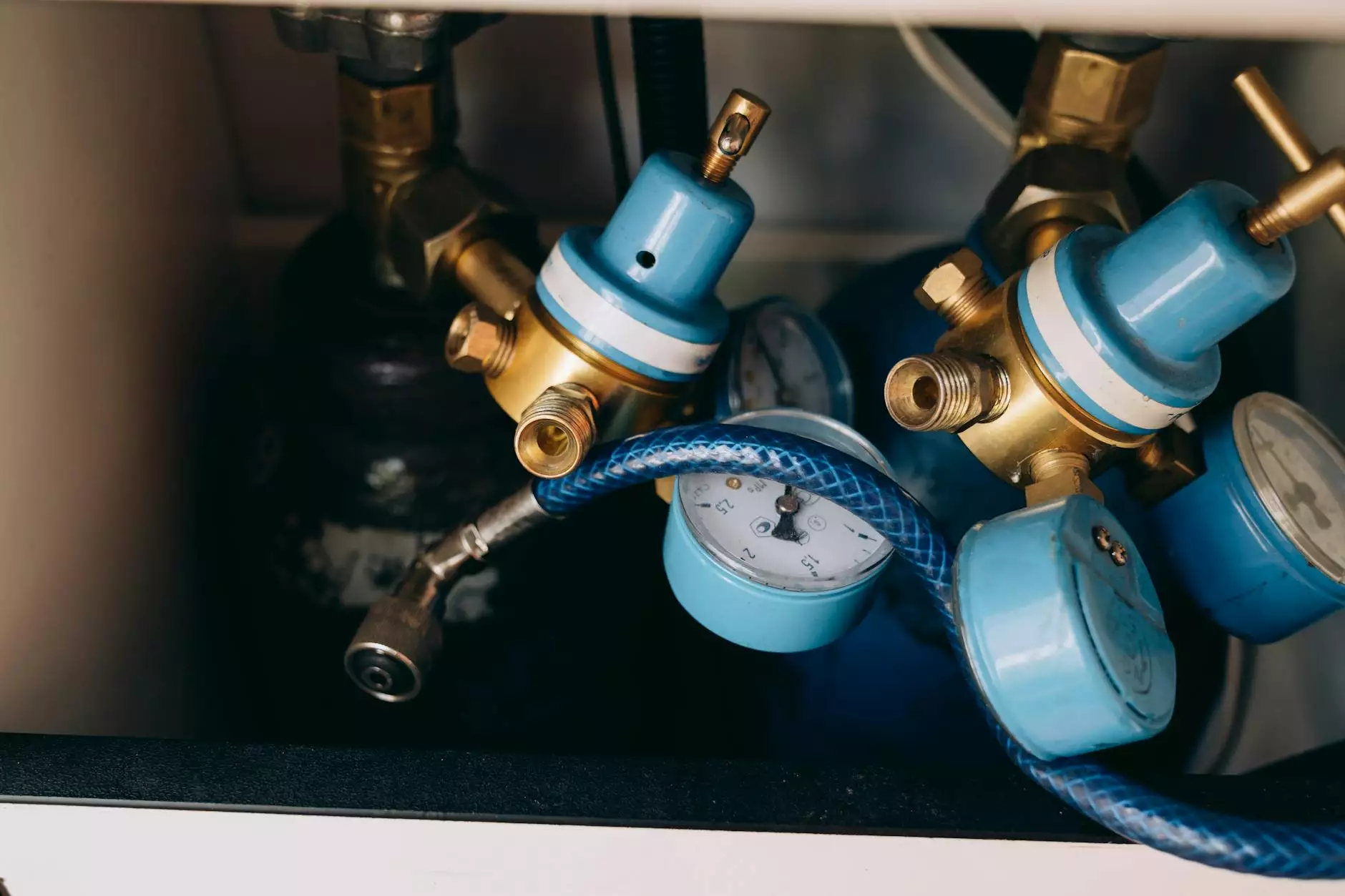Understanding Hydraulic Pumps: The Heart of Modern Machinery

Hydraulic pumps are integral components of countless machinery and equipment, playing a crucial role in translating power into mechanical movement. By leveraging the principles of hydraulics, these pumps provide the force necessary to operate everything from construction equipment to automotive systems. This comprehensive guide will delve into the world of hydraulic pumps, focusing on their functionality, types, applications, and maintenance tips to help you make informed decisions about their use in your business.
What Are Hydraulic Pumps?
A hydraulic pump is a mechanical device that converts mechanical power into hydraulic energy. This transformation occurs through the movement of hydraulic fluid, initiating a flow that can be harnessed to perform work. Typically, hydraulic pumps are powered by electric motors or internal combustion engines, making them highly versatile and reliable.
How Do Hydraulic Pumps Work?
At the core of hydraulic pumps are two fundamental principles: Pascal's Law and fluid dynamics. When a hydraulic pump operates, it creates a vacuum that draws hydraulic fluid from a reservoir. This fluid is then pushed through an outlet, generating a flow and pressure that can be used to power various devices.
- Pascal's Law - This law states that a change in pressure applied to an incompressible fluid in a confined space will be transmitted undiminished throughout the fluid. This principle enables hydraulic systems to multiply force efficiently.
- Fluid Dynamics - Hydraulic pumps utilize hydraulic fluid (usually oil) to transmit and amplify force, making use of the incompressible nature of liquids.
Types of Hydraulic Pumps
Hydraulic pumps come in various types, each suited to specific applications and requirements. Understanding these different types is essential for selecting the right pump for your needs.
1. Gear Pumps
Gear pumps are some of the most common hydraulic pumps, leveraging the rotation of gears to transfer fluid. They are known for their simplicity and robustness, making them ideal for low to medium-pressure applications.
- Advantages: Simple construction, cost-effective, and durable.
- Disadvantages: Limited efficiency at high pressures and low flow rates.
2. Vane Pumps
Vane pumps use a series of sliding vanes to create a sealed chamber that forces fluid from the inlet to the outlet. They are capable of higher pressures compared to gear pumps.
- Advantages: Good efficiency, variable flow rates, and quiet operation.
- Disadvantages: More complex construction than gear pumps, which can lead to higher maintenance costs.
3. Piston Pumps
Piston pumps utilize reciprocating pistons to generate flow and pressure. They are extremely efficient and are commonly used in high-pressure applications.
- Advantages: High efficiency, capable of generating very high pressures.
- Disadvantages: Generally more expensive and complex, resulting in higher maintenance needs.
4. Screw Pumps
Screw pumps utilize one or more helical screws to move fluid. These pumps are particularly effective for handling thick liquids and can operate at varying speeds.
- Advantages: High efficiency and capable of low shear, suitable for viscous fluids.
- Disadvantages: Higher initial costs and more complex designs.
Applications of Hydraulic Pumps
The versatility of hydraulic pumps allows them to be utilized across a wide range of industries and applications. Here are some key areas where hydraulic pumps play a pivotal role:
1. Construction
In the construction industry, hydraulic pumps are crucial for operating heavy machinery, including excavators, bulldozers, and cranes. These machines rely on hydraulic power to lift heavy loads and perform a variety of tasks efficiently.
2. Automotive
Hydraulic pumps are widely used in vehicles for systems such as power steering, braking, and suspension. By providing necessary hydraulic pressure, they enhance the safety and drivability of modern automobiles.
3. Manufacturing
In manufacturing, hydraulic pumps drive machinery and automation equipment. Whether in assembly lines or metal fabrication, hydraulic power is essential for maintaining productivity and efficiency.
4. Agriculture
Hydraulic systems are prevalent in agricultural equipment, such as tractors and harvesters. These pumps are used to power implements like plows, seeders, and lifts, enabling farmers to work more effectively.
5. Aerospace
Hydraulic pumps also find applications in aerospace, where they power flight control systems and landing gear mechanisms. Given the need for high reliability and performance, the hydraulic systems in aviation are designed to meet stringent standards.
Choosing the Right Hydraulic Pump
Selecting the appropriate hydraulic pump involves several considerations to ensure optimal performance and efficiency:
- Flow Rate: Determine the required flow rate based on your application needs. Each type of pump has its specifications for flow rates.
- Pressure: Consider the pressure requirements for the system. Piston pumps are suited for high pressure, while gear pumps are better for lower pressures.
- Fluid Type: Ensure compatibility with the hydraulic fluid you plan to use. Some pumps handle specific fluids better than others.
- Efficiency: Evaluate the efficiency of the pump, which can significantly impact overall operational costs.
- Cost: Factor in both the initial cost and the long-term maintenance costs associated with the pump type.
Maintenance of Hydraulic Pumps
Regular maintenance of hydraulic pumps is essential to ensure longevity and optimal performance. Here are key maintenance tips:
1. Regular Inspections
Conduct routine inspections to identify leaks, wear, and the condition of seals and hoses. Early detection can prevent significant failures.
2. Fluid Management
Maintain proper hydraulic fluid levels and ensure the fluid is clean and free from contaminants. Contaminated fluid can lead to pump damage and reduced efficiency.
3. Monitor Temperature
Keep an eye on operating temperatures. Overheating can cause severe damage to hydraulic pumps. Ensure cooling systems are functioning properly.
4. Lubrication
Some hydraulic pumps require lubrication at specific points. Follow the manufacturer's recommendations for lubrication to minimize wear.
5. Replacement of Filters
Regularly replace hydraulic filters to prevent clogging and contamination, which can impair pump operation.
Conclusion
Understanding the critical role of hydraulic pumps in modern machinery is vital for anyone involved in industries that rely on hydraulic systems. By selecting the right type of pump, maintaining it properly, and being aware of its applications, businesses can enhance their operational efficiency. Investing in quality hydraulic pumps and components from reputable suppliers, such as Shop Hydraulic America, not only ensures reliability but also supports the longevity of your equipment.
As industries continue to evolve, the demand for efficient and powerful hydraulic solutions will only grow. Embrace the power of hydraulic pumps to drive innovation and productivity in your business.









